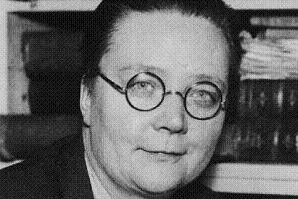Every Square Inch Belongs to God
How much of creation is under Christ’s lordship? Bruce Ashford answers that question in Kuyperian fashion in Every Square Inch: An Introduction to Cultural Engagement for Christians.
This small book packs a punch as Ashford translates his understanding of the Church-culture relationship into terms laypeople can understand and appreciate. Having spent several years living outside of the culture of the United States, Ashford gained insight into ways his understanding of Christianity was inappropriately tied up in his perception of American life.
Ashford sums up his biggest point as he wraps up his discussion of culture,
“Absolutely everything in life matters to God. He cared not only about the goings-on within the four walls of a congregational gathering, but also about the goings-on in other corners of society and culture. We must live Christianly not only as the Church gathered on Sunday morning for worship, but also as the Church scattered into the world in our work, leisure, and community life. We must take seriously our interactions in the arts, the sciences, the public square, and the academy.”
Every Square Inch seeks to show what the interface between Christianity and culture should look like.
Summary
After a brief introduction, Ashford demonstrates how views on culture vary. Just as a fish can’t describe water, so do we have difficulty understanding our own view on culture until someone points out distinctions between positions. In Chapter Two, Ashford explains his vision for a theology of culture, following the pattern of the biblical narrative through three movements: Creation, Fall, and Redemption/New Creation. These categories provide the rubric for much of Ashford’s academic work.
In the third chapter, the topic is vocation as it relates to culture. For many, vocation means the work one does to earn wages. However, Ashford’s vision is richer and fuller, encompassing various aspects of life like family, career/work, church, etc. We are called to more than just a career, we are called to honor God in every aspect of our lives. Chapter Four outlines six case studies on engagement with culture, which helps prove Ashford’s position is valid. He uses Augustine of Hippo, Balthasar Hubmaier, Abraham Kuyper, C.S. Lewis, Dorothy L. Sayers, and Francis Schaeffer as examples. Although none of these examples are expounded thoroughly, Ashford gives sufficient information to portray them accurately and to point the readers on to do further investigation for themselves.
Chapters Five through Nine all deal with particular spheres that Christians should seek to influence for Christ. In these five chapters, Ashford discusses engagement with the Arts, Sciences, Politics and the Public Square, Economics and Wealth, and Scholarship and Education. None of these chapters is a final analysis, but they do provide a helpful introduction and a place to begin the process of discovery.
Ashford concludes the book discussion the Christian Mission, which entails living all of life under Christ’s lordship and seeking to help demonstrate his Lordship in all creation. This a grand theme that permeates Scripture and pushes the Church outside her walls and into her communities for the glory of the Lord.
Analysis
In about 130 pages of content, Ashford manages to provide a solid overview of a broad sweep of Christian thought. Besides the question of the relationship between the Law and the Gospel, there are few questions more significant to Christian theology than how Christians should relate to cultures which are, most often throughout history, not distinctly Christian. Ashford’s book is a beginner’s field guide on the topic.
This is the sort of book I would recommend as a gift as a High School or College graduation gift. It’s the sort of thing I wish I had read earlier in life. It would also be a useful tool for pastors seeking to help expose an inquiring parishioner to meaningful cultural engagement or to help someone break out of a pattern of cultural isolationism.
As Western culture becomes increasingly post-Christian, learning to be a Christian minority will become more and more significant. Ashford’s book will help someone make a beginning step in that direction.












